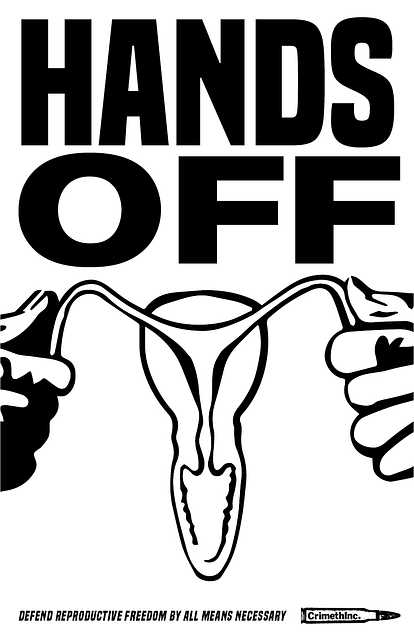We’ve prepared a poster and a selection of other resources in response to the news that the Supreme Court is poised to give a green light to government agencies to take away the reproductive freedoms of tens of millions of people.
-
You can find an array of useful information about how to gain or support access to abortion in each state here.
-
You can find information about self-managed abortion using abortion pills here and information about how to access abortion pills online here.
-
Sister Song is an organization that focuses on reproductive freedom for Indigenous people and people of color. Statistics suggest that these demographics account for two-thirds of those who seek legal abortion. Thanks to structural white supremacy in the distribution of resources in the United States, these demographics will be the hardest hit by restrictions.
-
Abortion Care Network offers a support network for independent community-based abortion providers.
-
You can read a strategy proposal for how to organize direct action to defend abortion access here.

This catastrophe compels us to confront the law itself as something hostile to us. If you are a person who might ever need an abortion—or if you care about a person who might—or if you believe that people deserve bodily self-determination, the state is your enemy. This system has given a handful of individuals, including at least two unrepentant sexual predators, the power to block abortion access to millions of people across the country. This is consistent with the explicitly misogynist and anti-trans agenda of the Republican Party and the systematic complicity of the Democratic Party.
As anarchists, we reject the idea that judges or politicians deserve the authority to determine the course of our lives. Rather than only trying to pressure leaders to vote one way or the other in a winner-take-all system that reduces us to spectators in the decisions that affect us, we propose solutions based in direct action: taking power back into our hands by enacting our needs and solving our problems ourselves, without representatives.
As long as legislators and judges can determine the scope of our reproductive options, our bodies and lives will be subject to the shifting winds of politics rather than our own immediate needs and values. Instead of validating their authority by limiting ourselves to calling for better legislators and judges, we should organize to secure and defend the means to make decisions regarding what we do with our bodies regardless of what courts or legislators decree.
In practice, this could mean networking with health workers who have the necessary skills, and sharing them widely; stockpiling and manufacturing the supplies we need for all sorts of health care; defending spaces where we can operate our own clinics; fundraising resources to secure access to health care and birth control options for all, regardless of ability to pay; and developing models for reproductive autonomy that draw on past precedents but address our current problems. We can do our best to render the decisions of would-be patriarchs like Kavanaugh irrelevant.
All this has already happened before. For example, from the late 1960s to the early 1970s, the Jane network, a vast clandestine effort centered in Chicago, provided illegal abortions to thousands of women. The fact that abortion was already accessible to so many women was a major factor in compelling the US court system to finally legalize abortion access in order to be able to regulate it. The most effective way to pressure the authorities to permit us access to the resources and care that we need is to present them with a fait accompli. Unfortunately, when it comes to standing up to elites like the Supreme Court and the police who enforce its decisions, there are no shortcuts.
-Kavanaugh Shouldn’t Be on the Supreme Court—Neither Should Anyone Else
Further Reading
- A zine about the Jane Collective (imposed and ready for printing)
